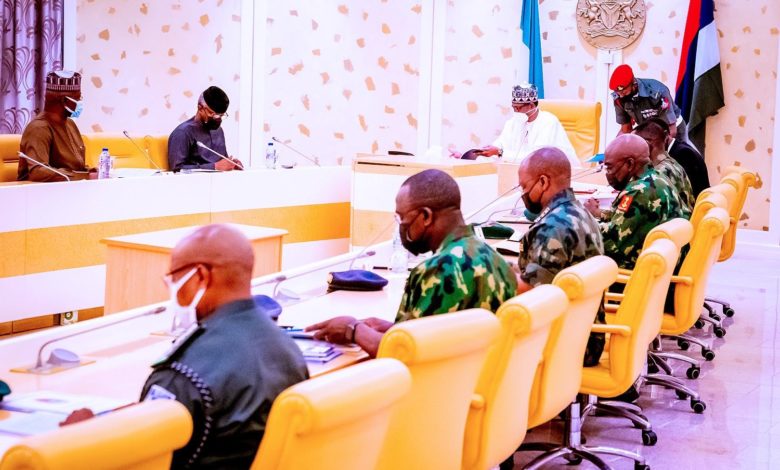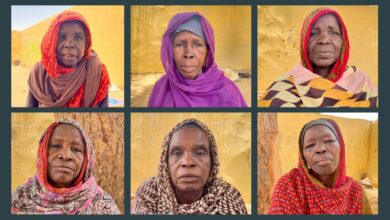Nigeria Adopts New Strategies To Combat Insecurity In Southern Regions
With threats facing security agencies in the southern part of the country, the Nigerian government says it is deploying new measures to de-escalate the crisis.

Nigerian President Muhammadu Buhari on Tuesday, May 11, unveiled new strategies to combat rising insecurity, following attacks on security formations in the Southeast and South-south regions.
President Buhari during a security council meeting in Abuja approved the unspelt measures as tensions between anti-government separatists and security agents heighten in the southern regions.
“The Security Council meeting which has taken place three times within the past 11 days has assessed the security situation in the country, particularly in the Southeast, South-south as it affects law and order,” Usman Baba, the Inspector-General of Police told journalists after the meeting.
With the military being overstretched with the decade-long insurgency from Boko Haram and its splinter group, ISWAP, in the northeast, and armed groups in the northwest, security resources are dwindling with attacks on police formations allegedly by the proscribed separatist group, Indigenous People of Biafra (IPOB), in the south.
Between Jan. and April, 2021, more than 20 attacks have been carried out on police formations in the region, according to HumAngle’s review of news reports.
In April, armed persons with machine guns and grenades attacked the Imo State Police Command and were believed to have stolen from the Command’s armoury. The group had initially invaded a nearby correctional facility where they released more than 1,800 inmates.
The police blamed the attack on separatists but the IPOB spokesperson, ‘Emma Powerful,’ denied involvement of the group, saying “it is not our mandate to attack security personnel or prison facilities.”
Herders-farmers clashes in the region have escalated, driving ethnic division.
When Buhari first took office in 2015, he rode on the promise to squash insecurity but many, including his allies, now complain about his failure to take control of the security situation.
“We have some measures which we have outlined and have been approved by the Council,” the police chief said, adding that a decision was reached at the meeting not to publicise strategies to be used to tackle insecurity in the country.
“We will see how we can change the narrative within the quickest possible means to restore law and order, peace in that area.”
Meanwhile, Babagana Monguno, the National Security Adviser said the President had issued directives on how to tackle the menace of crimes as it relates to the justice system.
“I briefed the Council on the enablers of crime and the need to find quick responses with a view to mitigating the growing threats to the society,” Monguno said.
“These enablers are discussed in detail and Mr President already gave out directions on how to deal with them, particularly issues of drug abuse as propellants for crime, and how to make the Criminal Justice System much more effective as we are looking at the issues of unemployment.”
Support Our Journalism
There are millions of ordinary people affected by conflict in Africa whose stories are missing in the mainstream media. HumAngle is determined to tell those challenging and under-reported stories, hoping that the people impacted by these conflicts will find the safety and security they deserve.
To ensure that we continue to provide public service coverage, we have a small favour to ask you. We want you to be part of our journalistic endeavour by contributing a token to us.
Your donation will further promote a robust, free, and independent media.
Donate Here




